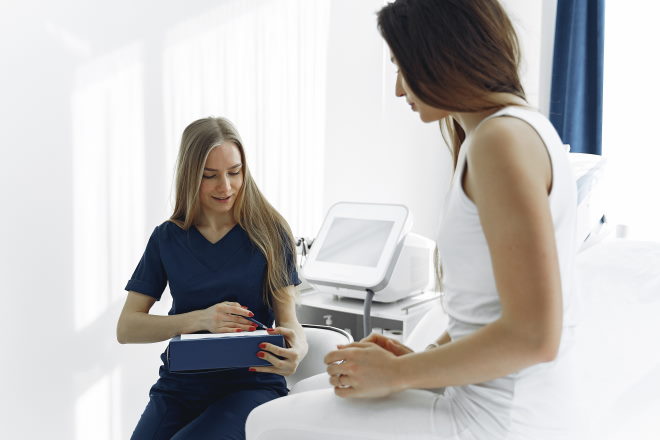How to Become a Medical Assistant in the Netherlands: Start with Training
Medical assistant roles are becoming more accessible in the Netherlands. Whether you live in a large city or a smaller area, you may not need prior experience to begin. Training programs are available to help newcomers enter the field confidently. With growing healthcare demand, this path offers hands-on work and long-term job potential.

What Does a Medical Assistant Do in Healthcare?
Medical assistants in the Netherlands serve as vital links between healthcare professionals and patients. Their responsibilities typically span both clinical and administrative domains, making them versatile members of any medical team. On the clinical side, medical assistants may perform basic procedures like taking vital signs, preparing patients for examination, and assisting physicians during procedures. They often collect and prepare laboratory specimens and perform basic laboratory tests.
The administrative responsibilities include managing patient records, scheduling appointments, handling correspondence, and processing insurance forms. In the Dutch healthcare system, medical assistants might also be responsible for translating medical information for international patients and maintaining inventory of medical supplies. Their role is particularly important in ensuring smooth operations in hospitals, clinics, and general practice offices across the Netherlands.
What Training Requirements Exist for Medical Assistants in the Netherlands?
In the Netherlands, medical assistant training follows a structured educational path that combines theoretical knowledge with practical skills. The most common qualification path is through an MBO (Middelbaar Beroepsonderwijs) program, specifically MBO level 4 in healthcare. These programs, known as “Doktersassistent” or “Medisch Secretaresse” courses, typically run for three to four years and are offered at various ROCs (Regional Training Centers) throughout the country.
The curriculum covers medical terminology, anatomy and physiology, administrative procedures, clinical procedures, pharmacology, and patient communication. Dutch language proficiency is essential, as medical assistants must communicate effectively with patients and healthcare professionals. For international applicants, reaching at least B2 level Dutch language proficiency is typically required before entering these programs.
Additionally, all medical assistants in the Netherlands must register in the BIG-register (Beroepen in de Individuele Gezondheidszorg), which is the official registration for healthcare professionals. This registration ensures that practitioners meet the quality standards required for healthcare provision in the Netherlands.
How Do You Choose the Right Training Program?
Selecting the appropriate medical assistant training program in the Netherlands requires careful consideration of several factors. First, accreditation is crucial—ensure any program you consider is recognized by the Dutch Ministry of Education and meets the requirements for BIG registration. The program should also offer comprehensive clinical internships (stages) at Dutch healthcare facilities, as hands-on experience is invaluable.
Consider the program’s teaching language—while most courses are taught in Dutch, some institutions offer English-language programs designed for international students, often with integrated Dutch language courses. Location matters too; urban areas like Amsterdam, Rotterdam, and Utrecht offer numerous training options, but may have higher living costs than smaller cities.
The teaching methodology varies between institutions, with some focusing more on practical skills while others emphasize theoretical knowledge. Review each program’s curriculum to ensure it aligns with your learning style and career goals. Many successful medical assistants recommend visiting open days at various schools to get a feel for the learning environment and speak with current students and instructors.
What Career Opportunities Await After Training?
Completing medical assistant training in the Netherlands opens doors to diverse employment opportunities within the healthcare sector. Graduates can find positions in hospitals, general practitioner practices (huisartsenpraktijken), specialist clinics, mental health facilities, and elder care centers. The Dutch healthcare system continues to expand, creating steady demand for qualified medical assistants.
Career advancement possibilities include specializing in particular medical fields such as dermatology, pediatrics, or geriatrics through additional training courses. Some medical assistants pursue further education to become practice managers or healthcare administrators. Others use their experience as a stepping stone toward nursing or other advanced healthcare professions.
The flexibility of the profession allows for both full-time and part-time employment arrangements, making it suitable for those seeking work-life balance. Many healthcare facilities in the Netherlands also offer continued professional development opportunities, ensuring that medical assistants can continuously enhance their skills and knowledge throughout their careers.
What Are the Costs of Medical Assistant Training in the Netherlands?
Medical assistant training programs in the Netherlands vary in cost depending on the institution, program duration, and whether you qualify for government subsidies. For Dutch citizens and EU residents, MBO programs typically cost between €1,200 and €2,400 per academic year. For non-EU students, tuition fees may range from €6,000 to €15,000 annually.
| Institution | Program Duration | EU Student Cost (Annual) | Non-EU Student Cost (Annual) | Notable Features |
|---|---|---|---|---|
| ROC van Amsterdam | 3 years | €1,250 | €7,500 | Strong hospital partnerships, urban location |
| ROC Mondriaan | 3-4 years | €1,200 | €6,800 | Multiple language support, flexible schedules |
| Albeda College | 3 years | €1,300 | €8,200 | Intensive practical training, high job placement |
| ROC Tilburg | 4 years | €1,250 | €7,200 | Rural healthcare focus, smaller class sizes |
| Summa College | 3 years | €1,350 | €9,000 | Technology-focused curriculum, modern facilities |
Prices, rates, or cost estimates mentioned in this article are based on the latest available information but may change over time. Independent research is advised before making financial decisions.
Additional costs to consider include study materials (approximately €500-800 per year), professional attire for internships, travel expenses to clinical placements, and potentially accommodation if you need to relocate. Many Dutch students are eligible for studiefinanciering (study financing) through DUO (Dienst Uitvoering Onderwijs), the Education Executive Agency, which can provide loans and grants to offset these costs. International students may qualify for scholarships through their home countries or international organizations.
How to Prepare for Success in Your Medical Assistant Career?
Beyond formal training, several strategies can enhance your prospects as a medical assistant in the Netherlands. Developing strong Dutch language skills is paramount, even if you initially train in English. Cultural competence is equally important—understanding Dutch medical culture and patient expectations will significantly impact your effectiveness.
Networking with healthcare professionals through internships, workshops, and professional associations like the Nederlandse Vereniging van Doktersassistenten (NVDA) can create valuable connections. Maintaining a professional portfolio documenting your clinical experiences, additional certifications, and continuing education demonstrates your commitment to professional growth.
Technological proficiency is increasingly valuable as Dutch healthcare facilities continue to digitize their operations. Familiarize yourself with electronic health record systems and standard medical software used in the Netherlands. Finally, cultivating soft skills like empathy, communication, and stress management will serve you well in this patient-centered profession.
This article is for informational purposes only and should not be considered medical advice. Please consult a qualified healthcare professional for personalized guidance and treatment.




